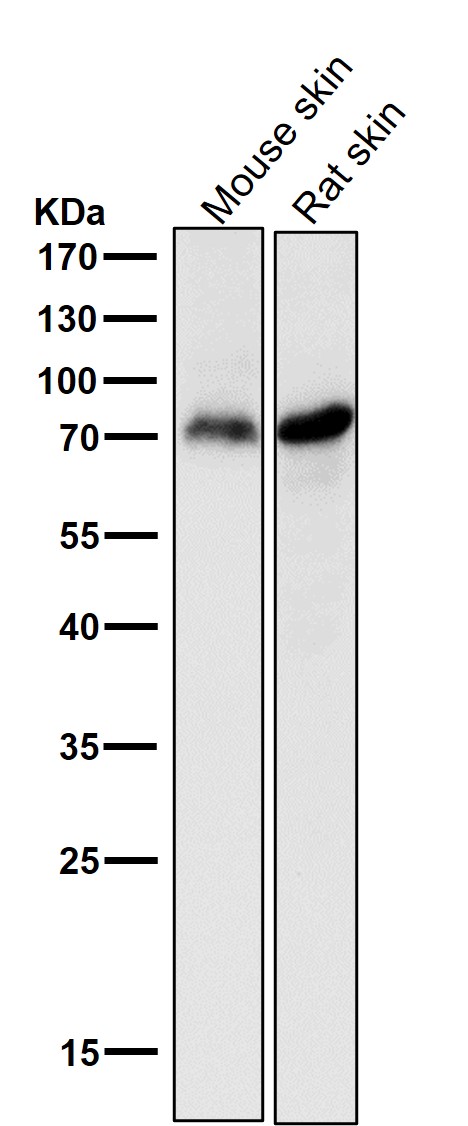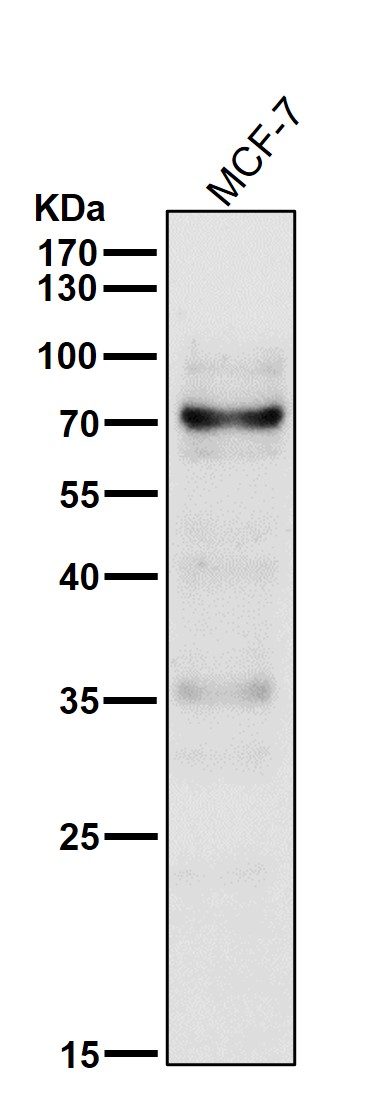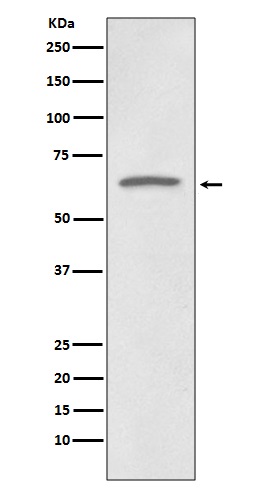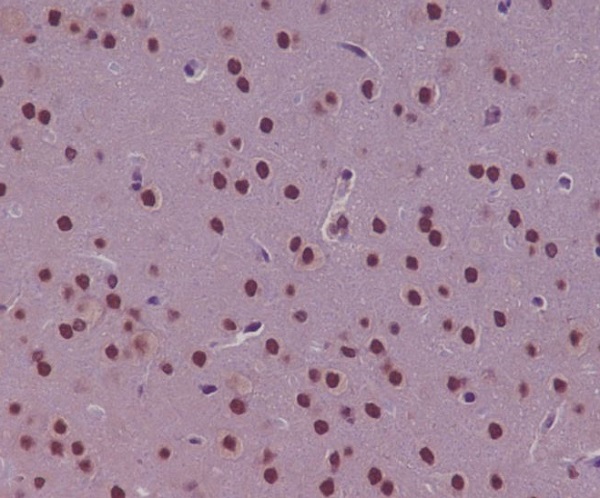



| WB | 1/1000-1/2000 | Human,Mouse,Rat |
| IF | 咨询技术 | Human,Mouse,Rat |
| IHC | IHC:1/100-1/200;IHF:1/50-1/200 | Human,Mouse,Rat |
| ICC | 1/50-1/200 | Human,Mouse,Rat |
| FCM | 咨询技术 | Human,Mouse,Rat |
| Elisa | 咨询技术 | Human,Mouse,Rat |
| Aliases | p53-like transcription factor; p53-related protein; P73 alpha protein; p73-alpha; TP73; TRP73; Tumor protein p73;;p73 |
| WB Predicted band size | 70 kDa |
| Host/Isotype | Rabbit IgG |
| Antibody Type | Primary antibody |
| Storage | Store at 4°C short term. Aliquot and store at -20°C long term. Avoid freeze/thaw cycles. |
| Species Reactivity | Human,Mouse,Rat |
| Immunogen | A synthesized peptide derived from human p73 |
| Formulation | Purified antibody in PBS with 0.05% sodium azide,0.05% BSA and 50% glycerol. |
+ +
以下是关于p73抗体的3篇参考文献示例(文献信息为示例性概括,非真实文献):
1. **文献名称**:p73蛋白在结直肠癌中的表达及其临床意义
**作者**:Smith A, et al.
**摘要**:该研究通过免疫组化法使用p73特异性抗体分析结直肠癌组织样本,发现p73的高表达与肿瘤分期及患者预后不良相关,提示其可能作为潜在生物标志物。
2. **文献名称**:p73亚型在乳腺癌中的差异表达研究
**作者**:Chen L, et al.
**摘要**:利用两种不同表位识别的p73抗体(识别TAp73和ΔNp73亚型),发现ΔNp73在激素受体阴性乳腺癌中显著上调,可能与化疗耐药性有关。
3. **文献名称**:新型p73单克隆抗体的开发与验证
**作者**:Tanaka K, et al.
**摘要**:研究报道了一种高特异性抗人p73单克隆抗体的制备,通过Western blot和免疫荧光验证其在细胞系及小鼠模型中的靶向结合能力,适用于功能性研究。
(注:以上为模拟内容,实际文献需通过PubMed或学术数据库检索获取。)
The p73 antibody is a crucial tool in studying the p73 protein, a member of the p53 tumor suppressor family. Discovered in 1997. p73 shares structural and functional similarities with p53. including roles in cell cycle regulation, apoptosis, and DNA repair. However, unlike p53. p73 is rarely mutated in cancers. Instead, it exhibits complex regulation through alternative promoter usage and splicing, generating isoforms with opposing functions: transcriptionally active full-length variants (TAp73) promote apoptosis and cell differentiation, while N-terminally truncated isoforms (ΔNp73) act as oncogenes by dominant-negatively inhibiting TAp73 and p53.
p73 antibodies are designed to detect specific isoforms or epitopes, enabling researchers to dissect their distinct roles in development, aging, and diseases. These antibodies are widely used in techniques like Western blotting, immunohistochemistry, and immunofluorescence to study p73 expression patterns in tissues and cellular compartments. Their applications span cancer research (e.g., tumor progression, chemoresistance), neurodevelopment studies, and investigations of p73's non-oncogenic roles in immunity and sensory systems.
Challenges in p73 antibody development include high homology with family member p63 and isoform-specific detection. Recent advances in monoclonal antibody technology have improved specificity, aiding the characterization of p73's dual roles in tumor suppression and oncogenesis. Validated p73 antibodies remain critical for exploring its therapeutic potential and as a biomarker in cancer prognosis.
×